#Olympic Canoe Slalom Tickets
Explore tagged Tumblr posts
Text
The Olympic Sports I Think Nancy Drew Characters Would Play Based on Vibes
Ned: swimming. Oh man he has big swimmer energy. I will not elaborate. Daryl does too.
Kiri: rugby. In fact she was on the women’s NZ rugby team that just won gold. If you didn’t see her you weren’t watching hard enough not my problem
Jane Penvellyn (in a few years): DRESSAGE. Oh my god. All the Penvellyns are dressage. It’s a linage of dressage. That whole family is so dressage coded. Except for Alan, he did modern pentathlon.
Katie AND Jenna: they both do canoe and kayak slaloms and they are big rivals and lovers. Also Holt does sailing.
Tex: I know you think I’m going to say an equestrian sport but that’s WRONG he does shooting. Try to tell me that man has ever missed a rifle shot I dare you! (Ollie has though lol)
Mary: you may think I’m going to say an equestrian sport and you are RIGHT. She does cross country with her horsie :)
Isis: she is a wolf so unfortunately she can’t compete. But long jump.
Connie: Judo duh
Pua: surfing duh
Hulk: he’s actually not in the Olympics. They have rules against steroids sorry Hulk
Rick Arlen: he’s not in the Olympics either but he bought beach volleyball tickets and the cameras keep cutting to him in the stands before going to commercial
Jacques: he’s not in this Olympics. Check back in two years
Yanni: him too. You know if I had a nickel for each time a Nancy Drew game had an asshole Olympic skier as a character…
Jim Archer: fencing. He wins gold. I know you think I’m joking but look up the president of the IOC who won gold in fencing like fifty years ago and you will see that they are the same man.
Frank: mountain biking. He just gives me that vibe and this is based on vibes so there you go.
George: heptathlon!! She’s ripped and also good at cardio!
Henrik: he was a pole vaulter in the 60s. Look at how tall and skinny he is. If this was real life they’d be calling it the Van der Hune flop not the Fosbury flop.
Harlan: wrestling. Search your heart, you know it to be true!
Minette: she switched martial arts to Judo but she loses her first match and gets kicked out of the tournament because she announces every move she’s about to do.
Niko Jovic: unfortunately he is dead so he’s not gonna be participating.
Brenda Carlton: rhythmic gymnastics. The US does not perform well in that sport and she’s going to do nothing to change it.
Helena: triathlon. Imagine it. She can swim and bike and run, I’m sure of it.
Niobe: did you know that up until the 1940s they had art categories in the Olympics? Unfortunately that was like 80 years ago so sorry Niobe it isn’t happening for you.
Elka: she seems short. Gymnastics. She’s not coming anywhere near team USA though.
Anja: oh my god shot put. The lady is made to be a shot putter.
Leela: actually she’s not going to the Olympics because she spends all her time playing air hockey instead of training. Bummer. Kim and Rachel are synchro divers though.
33 notes
·
View notes
Note
I’ve been so into the Olympics this week and I’m just thinking how Jack is probably at the age where this is probably the first Olympics he could get into and I can just see him and gg watching all sorts of random sports and events and him asking a million questions and there’re just having the best time bonding
Toto would come home to find them laying on the couch together watching and getting into something so random like canoe slalom or trampoline
golden girl is superrrr patriotic around the olympics and wants to teach jack about every single athlete!
and since it’s technically summer break for f1, i wouldn’t be surprised if toto managed to snag some tickets to some of the events 🤭
#he would love watching gg and jack bond#he would melt fr#asks: alkaline 💌#asks: toto wolff 💌#asks: golden girl 💌
17 notes
·
View notes
Text

Update: Release/Launch time 16:20BST
The next flight of Virgin's Spaceship Two VSS Unity, Galactic 2, is scheduled for today on its 11th powered flight and second operational commercial flight taking off from Runway 34 Spaceport America, Jornada del Muerto Desert, New Mexico. Pic: VMS Eve and Unity on mission Unity 25 on 25 May 2023. This time Virgin Galactic will televise the mission from 16:00BST
Galactic 02:
Pilot VMS Eve Lt Col Mike Masucci USAF (ret)
Co-Pilot VMS Eve: Nicola Pecile former NTPS, Mojave CA Italian AF (ret)
Commander VSS Unity Col Frederick 'CJ' Sturkow USMC/NASA (ret)
Pilot Lt VSS Unity Col Kelly Latimer USAF (ret)
Instructor 002 Beth Moses NASA (ret) Chief Astronaut Instructor Virgin Galactic (4th flight)
Astronaut 011 Jon Goodwin
Astronaut 012 Keisha Schahaff
Astronaut 013 Anastatia Mayers
Jon Goodwin
British, first Olympian to fly in space, he competed in two C-2 slalom canoeing events in the 1972 Munich Olympics for the UK. Aged 80. He has been a regular and leading competitor in the Ferrari Hillclimb Championship (motorsport) since 1992. He was diagnosed with Parkinson's neurological disease in 2014. he will be the second person to fly with the condition, NASA astronaut Rich Gillford was diagnosed before making his second spaceflight on STS-76
Keisha Schahaff
An entrepreneur, aged 46, won a pair of tickets in a draw competition by NPO Space for Humanity. She will become the first sub-orbital astronaut from Antigua and Barbuda, Caribbean, along with her daughter, also the first mother and daughter pair to fly in space together.
Anastatia Mayers
Daughter of Keisha Schahaff, aged 18. She is studying philosophy and physics at Aberdeen University, Scotland. Second youngest person to fly in space, also second person from Aberdeen University (the first being Cmr Brian Binnie with an honorary degree, who's father taught at the university)
youtube
0 notes
Text
Olympic Paris: Dickson wants to reach milestones on the road to France Olympic
Olympic Paris: Dickson wants to reach milestones on the road to France Olympic
Olympic fans from all over the world can book Olympic Packages from our online platforms eticketing.co. Paris 2024 fans can book Olympic Tickets on our website at exclusively discounted prices.
#OlympicTickets , #Olympic2024tickets , #OlympicCanoeSlalomTickets , #ParisOlympicTickets , #Paris2024tickets , #ParisOlympic2024Tickets, #Olympicspackages , #FranceOlympicTickets , #Olympics2024packages, #OlympicgGames2024Tickets, #OlympicGamesTickets,
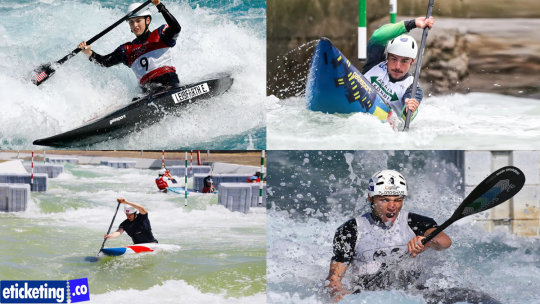
0 notes
Text
Olympic Slalom: Tokyo Olympic canoe slalom venue opens for athlete practice
The canoe slalom venue for next year's Olympic 2020 Games in Tokyo has opened for athletes to practice. The Tokyo Metropolitan Government announced the opening dates of two new permanent venues for the Olympic and Paralympic Games the Kasai Canoe Slalom Centre and the Tatsumi Water Polo Centre.
Fans from all over the world are called to book Olympic 2020 tickets from our online platforms for Olympic Tickets. Olympic Slalom fans can book Olympic Slalom Tickets from our ticketing marketplace exclusively on reduced prices.
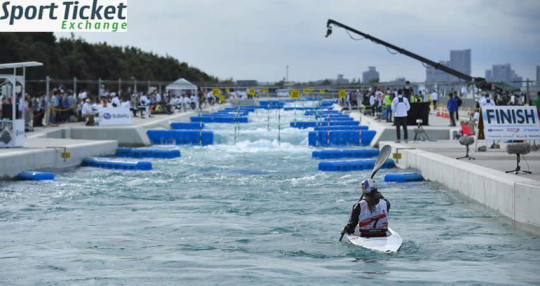
Places will be open to the public as long as usage does not delay with the delivery of and preparations for the Games. Tokyo Olympic is now set to take place in 2021 after it was put off due to the coronavirus pandemic.
The Kasai Canoe Slalom Centre opened for practice use by athletes today and will remain open until December 28. Members of the public will also be able to use the venue for pushing tours and kayak training sessions. A date for this has not been proclaimed, however, due to concerns nearby the spread of coronavirus. The Centre, which cost ¥7 billion to shape, is set to host canoe slalom competition from July 25 to 30, 2021, during Tokyo Olympic.
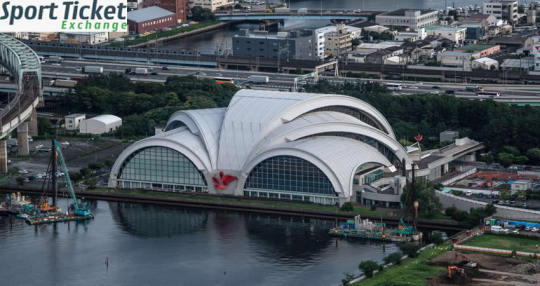
The Tatsumi Water Polo Centre is usual to open for rivalry and practice use on August 21. It will continue open until March 31 2021, with a rivalry already booked in the venue from August 21 to 31. Again, a date for public access is set to be announced in the coming months.
The Olympic water polo races are due to be held from July 24 to August 8, 2021. Members of the public will also be able to swim and dive at the site. The inaugural dates of other new permanent venues will be announced later. Tokyo Olympic recently confirmed it had secured all 42 venues required to host the postponed Olympic and Paralympic Games next year, having reached agreements for the Athletes' Village and the Big Sight exhibition Centre.
Olympic 2020 admirers can get Olympic Tickets through our trusted online ticketing marketplace. Sportticketexchange.com is the most dependable way to book Olympic Packages.
0 notes
Text
Olympic Swimming: Tokyo Olympic venues for swimming and hockey among the latest set to be opened to the public
The Tokyo Metropolitan Government has confirmed three more venues due to be used during the Olympic 2020 and Paralympic Games will be open to the public before the rescheduled events. Public opening dates have been revealed for the Kasai Canoe Slalom Centre, the Oi Hockey Stadium and the Tokyo Aquatics Centre, all of which have already been made available for use by sports federations.
Olympic lovers from all over the world are called to book Olympic 2020 tickets from our online platforms for Olympic Tickets. Olympic Swimming lovers can book Olympic Swimming Tickets from our ticketing marketplace exclusively on reduced prices.
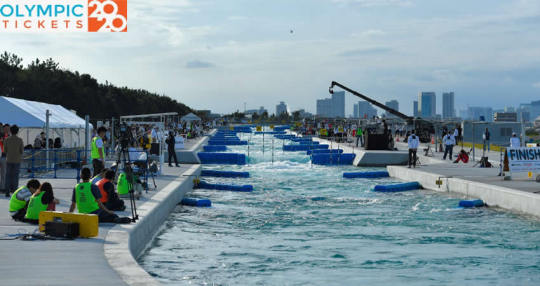
The Oi Hockey Stadium is due to open its doors to members of the public from tomorrow, with the Kasai Canoe Slalom Centre following on October 1. The public is set to be granted access to the Tokyo Aquatics Centre for experiences and tours from October 30.
Sports federations will be able to use the center from October 25, the day after the planned grand Opening Ceremony of the venue. Tokyo Olympic has warned the public use of the venues "may be suspended in the future" depending on the COVID-19 pandemic. Infection control measures will be in place, while organizers have said restrictions on the number of entrants may need to be implemented in response to the coronavirus crisis.
"The venues will be open to the public to the extent that public usage does not interfere with the delivery of and preparations for the Games," Tokyo Olympic supposed in a statement.
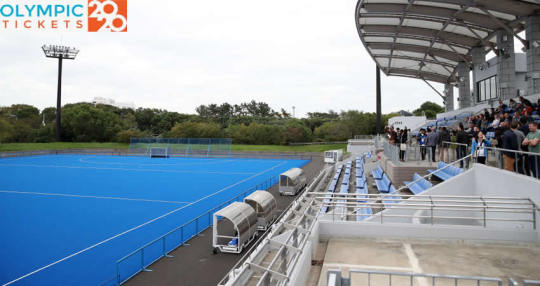
Venues will open for public use successively, once discussions with the relevant organizations have decided and safety measures for temporary overlays have been implemented. Other venues to have been opened for the public in recent months include the Sea Forest Waterway and the Yumenoshima Park Archery Field.
The Sea Forest Waterway, the venue for rowing at the Games, had been opened for use by sports federations from August 22 and for use by "non-sports-related groups" from September 7.
Olympic 2020 lovers can get Olympic Tickets through our reliable online ticketing market place. OlympicTickets2020.com is the trustiest way to book Olympic Packages.
0 notes
Text
iVisit....ICF Canoe Slalom World Cup
The 2019 ICF Canoe Slalom World Cup London presented by Jaffa will take place at Lee Valley White Water Centre on 14 June. You can buy tickets here, or read the schedule here.
The event is an annual series of five races. They usually taking place during the months of June, July, August and September.
Competitors accumulate points. The competitor with the highest number from all world cup races in their given discipline, becomes the overall world cup champion.
Currently, the winner of a world cup race gets 60 points, with double points awarded in the World Cup Final. Full details are available on the International Canoe Federation website here.
2019 ICF Canoe Slalom World Cup London presented by Jaffa
In April 2017 British Canoeing won the ICF Canoe Slalom World Cup event for 2019. It also secured the 2020 ECA Canoe Slalom European Championships.
Both events will be held at the Lee Valley White Water Centre. This was the venue that hosted the slalom competitions at the London 2012 Olympic Games. At the event Team GB claimed gold and silver medals in the men’s C2 slalom.
The Centre has previously hosted a World Cup event in 2014 and the 2015 ICF Canoe Slalom World Championships.
Both bids have been fully supported by UK Sport and Lee Valley Regional Park Authority. As part of an international events strategy British Canoeing won a successful bid for the 2021 ICF Canoe Freestyle World Championships. This will at the National Water Sports Centre in Nottingham.
David Joy, chief executive of British Canoeing says:
“I am delighted that British Canoeing is hosting the ICF World Cup and the ECA Canoe Slalom European Championships ahead of the Tokyo 2020 Olympic Games. To have been awarded three international events clearly demonstrates the quality of our bids, as well as our willingness to work with key partners and the canoe disciplines to bring international competitions in the UK.”
0 notes
Text
Paris 2024: Evy Leibfarth is already looking forward to Olympic Paris
Olympic fans from all over the world can book Olympic Packages from our online platforms eticketing.co. Paris 2024 fans can book Olympic Canoe Slalom Tickets on our website at exclusively discounted prices.
OlympicTickets , #Olympic2024tickets , #OlympicFootballTickets , #ParisOlympicTickets , #Paris2024tickets , #ParisOlympic2024Tickets, #Olympicspackages ,
Olympics2024packages,#OlympicgGames2024Tickets,#OlympicGamesTickets,

0 notes
Text
Olympic Slalom: Former world champion Kudejova wins two gold medals at Canoe Slalom European Championships
Former world champions Kudejova of the Czech Republic and Slovenia's Benjamin Savsek claimed the final individual titles on offer at the Canoe Slalom European Championships in Prague. Kudějová, the 2015 individual world champion, triumphed in the women's K1 event in the Czech capital.
Olympic fans from all over the world are called to book Olympic 2020 tickets from our online platforms for Olympic Tickets. Olympic Slalom fans can book Olympic Slalom Tickets from our ticketing marketplace exclusively on reduced prices.
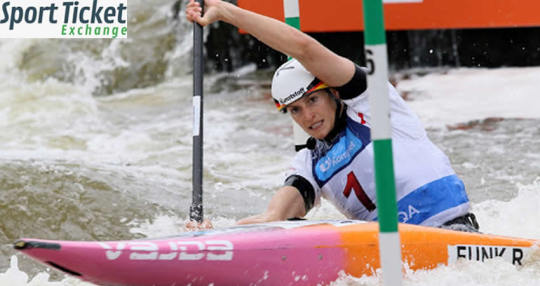
The 30-year-old recorded a time of 112.71sec to edge out French rival Camille Prigent by 1.90sec and continue the success for the Czech team at their home European Championships. Amalie Hilgertova of the Czech Republic took bronze, 2.42 adrift of her victorious compatriots.
Kudějová secured her second gold medal of the day in the team event, partnering Veronika Vojtová to the European title in 139.64. Price was again forced to settle for silver after finishing second with teammate Lucie Buadu, 1.03 behind the Czech team.
Corinna Kuhnle and Nina Watching did enough for bronze as they completed the course 5.83 slower than the gold medalists. Savšek, the 2017 world champion, added another major title to his collection with victory in the men's C1 competition.
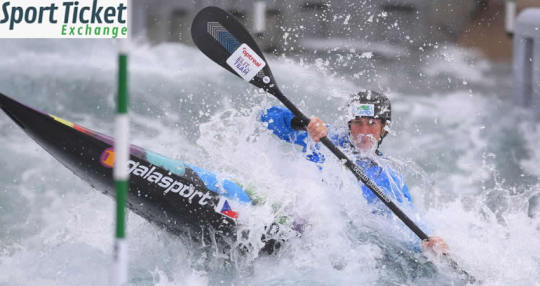
The Slovakian multiple European gold medalist clocked 104.90 to deny the Czech side another gold on home soil. Lukas Rohan was 3.76 adrift in second place, while bronze went to his Czech teammate Václav Chaloupka.
Slovenia won the men's team crown ahead of crews from Ireland and Poland, who took silver and bronze, respectively. The Czech Republic had been awarded the silver medal before they were handed a 50-second penalty, which saw them end the competition outside of the medals.
Olympic 2020 admirers can get Olympic Tickets through our trusted online ticketing marketplace. Sportticketexchange.com is the most dependable way to book Olympic Packages.
0 notes
Text
Olympic Canoe: Canoeist Funk warns long term effects of coronavirus on athletes are "still unknown"
German canoe slalom paddler Ricarda Funk speaks she trusts that the long-term belongings of coronavirus should be anxiety for all athletes. Funk, who has already qualified for the rearranged Tokyo Olympic Games, supposed that although athletes are used to protecting themselves and staying healthy, the coronavirus has presented new challenges in this regard.
Olympic fans from all over the world are called to book Olympic 2020 tickets from our online platforms for Olympic Tickets. Olympic Basketball fans can book Olympic Canoe Tickets from our ticketing marketplace exclusively on reduced prices.

Speaking as part of the International Canoe Federation's series of podcasts How Sports Stars Cope in COVID-19 lockdown, Funk described coronavirus as scary. If you get it, maybe there is a remaining impact, I don’t know. So yes, I am a little bit scared, but I just try to stick to the rules, and I think if you keep this in mind we should be safe. We never really know, you could be infected and you don’t know.
"Of course it is a little bit frightening because it’s new, and we don’t know yet the influence on athletes," Funk supposed.
Funk, who has won five World Championship medals counting one gold as well as two general World Cup titles in the K1 class, was on her way to Australia to make for the Olympics as the coronavirus pandemic began to take hold around the world.
"I was expecting it somehow, it was the right decision and I’m fine with this because the health of the public is much more important than the Olympic 2020 Games," Funk supposed.
But we all have to get through this, and I think we will find a good way. It’s crazy because in 2016 my selections were awful. I was in good form, but I just couldn’t bring it down. I trained hard since 2016, after failing, I had this goal in my head and I wanted to go there, and then I finally made it, and now for the first time in history, this has happened.
“Verfuerth, who has been locked down in Arizona for several months, said she had experienced a rollercoaster of emotions during the pandemic.”
Funk was joined on the podcast by Kaitlyn Verfuerth, who has represented the United States in tennis at three Paralympic Games and is now attempting to qualify for the Tokyo Paralympics in the sport of para canoe.
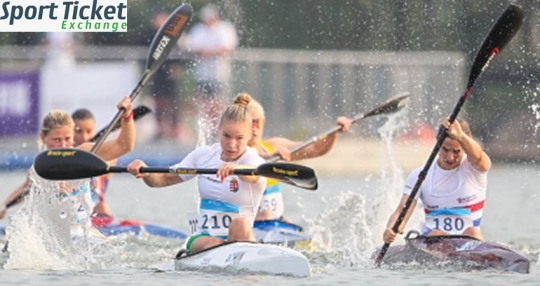
"It’s very unclear, some days you feel good, and some days you ask by hand why do you even want to get out of bed," Verfuerth supposed.
I keep trying to find things to motivate me, and staying fit is one of them. Back in March, I was in a lull when everyone was still debating if some of our activities and competitions were still going to happen. I felt really in this limbo, do I continue to train, am I supposed to train because I’m not supposed to be around anybody, what’s the point of training if I’m not going to compete.
Olympic 2020 fans can get Olympic Tickets through our trusted online ticketing market place. Sportticketexchange.com is the most dependable way to book Olympic Packages.
0 notes
Text
Olympic canoe: Canoe slalom racer Luuka Jones eyeing a higher podium finish
Kiwi canoe slalom racer Luuka Jones will start her road to the Olympics in earnest this weekend at the Oceania Championships. After claiming a silver medal at Rio 2016, Jones hopes to go one better at her fourth Games, battling an old trans-Tasman rival to do so. She admits she's carrying some weight of expectation to Tokyo Olympic.
Olympic fans from all over the world are called to book Olympic 2020 tickets from our online platforms for Olympic Tickets. Olympic Basketball fans can book Olympic Canoe Tickets from our ticketing marketplace exclusively on reduced prices.

I have a lot of time to keep improving before the Games as well, but there's an expectation and I didn't have that in Rio. Standing in her way is old rival and friend, Australian Jess Fox, who won bronze four years ago.
"I reason back in Rio and how superior it was to share the podium with her, and to be New Zealand and Australia side by side, speaks Fox. It was sisterhood in away."
The pair have their first major competition of the season in Auckland. After both provisionally qualifying for Tokyo, it's a chance to test the waters six months out from the Games. I think the whole world will be watching this race and the Australian Open to see how we're going, speaks Fox.
Says Jones: "I have a lot of respect for Jess, but there's a rivalry we're both trying to win the Oceania championships."

Jones has more experience on her side and Tokyo Olympic will leave her just one shy of board Sayler Barbara Kendall's record of five Olympics. These may be her toughest challenge yet, with Jones also racing the single-paddle C1, as well as her usual double-paddle K1 race.
Last year, especially, was quite a battle for me in C1 and I did have to consider if I wanted to do both in Tokyo, but I feel like I'm back. Two events for two old foes, who will battle for trans-Tasman bragging rights come July.
Olympic 2020 fans can get Olympic Tickets through our trusted online ticketing market place. Sportticketexchange.com is the most dependable way to book Olympic Packages.
0 notes
Text
Olympic Canoe: Paddle Australia confirms new strategic priorities for Paris 2024
Paddle Australia has revealed its strategic priorities to support its performance objectives for the Paris 2024 Olympics, having made changes due to the COVID-19 pandemic. With a smaller Olympic cycle of only three years now between Tokyo and Paris, the plan comes after the Australian Government pledged funds to the high-performance sport, helping to alleviate the financial cost of the ongoing crisis.
Olympic fans from all over the world are called to book Olympic 2020 tickets from our online platforms for Olympic Tickets. Olympic Basketball fans can book Olympic Canoe Tickets from our ticketing marketplace exclusively on reduced prices.

Paddle Australia started its strategic planning process in the latter part of 2019 in collaboration with high-performance sports consultant Mike McGovern. He conducted a consultation process to identify important strategic and operational practices that could help Paddle Australia benefit internationally in canoe slalom, canoe sprint, and para canoe.
Originally intended to run until the conclusion of the Paris 2024 Games, it will also incorporate the postponed Tokyo Olympic Games, now due to take place in 2021.
National performance director Shaun Stephens said: "Whilst we need to keep our eyes firmly fixed on the new date for the Tokyo Olympic and Paralympic Games, we must also continue to plan for continued success in Paris and beyond.”
By implementing some of these changes now, we assist our objectives in Tokyo 2021, but importantly, this will provide us with good momentum into the shortened 2024 Olympic and Paralympic cycle.
Speaking about the funding, Stephens added: "The announcement comes at an ideal time for the confirmation of our high-performance strategic plan to ensure our teams remain internationally competitive through Tokyo Olympic, Paris 2024 and beyond.”
We welcome the funding commitment, which will ensure that current funding levels can be maintained as our athletes and coaches continue their preparations for the Tokyo Olympic and Paralympic Games. Due to the success of canoe slalom and para canoe, the programmed for these disciplines will continue with developing strategies and initiatives.

With canoe sprint not being as successful, there is an aim to make a strategic shift over the next 18 months to ensure its success for Australia. There will also be improvements to the performance pathways to ensure development continues in the sport, while kayaking will receive a full programmed, centralized at the National Centre of Excellence with a higher quality of coaching.
It will also focus on a relationship between the governing body and athletes to ensure mutual success at Olympic and Paralympic level. Australia has won at least one Olympic medal in canoeing at every game since 1980, winning two bronze medals at Rio 2016.
Olympic 2020 fans can get Olympic Tickets through our trusted online ticketing market place. Sportticketexchange.com is the most dependable way to book Olympic Packages.
0 notes
Text
Olympic Canoe: Majority of canoeists back return to competition in 2020 after ICF survey
A majority of athletes surveyed by the International Canoe Federation (ICF) have backed some form of competition taking place in 2020. More than half said they hoped to return to the water this year after several events were removed from the schedule due to the coronavirus pandemic.
Olympic fans from all over the world are called to book Olympic 2020 tickets from our online platforms for Olympic Tickets. Olympic Basketball fans can book Olympic Canoe Tickets from our ticketing marketplace exclusively on reduced prices.

Sixty-four percent of respondents to the survey, which was issued by the ICF's Athletes' Commission, said they would be happy to wait until the end of June for a decision to be made on the 2020 calendar. However, almost half said they felt they would not be able to adequately prepare for a World Championship held this year, due to the restrictions caused by COVID-19.
World Championships for non-Olympic disciplines in canoe slalom and canoe sprint, as well as flagship events in canoe marathon, ocean racing, and dragon boat, were all on the ICF schedule for 2020 before the pandemic threw the schedule into doubt. The survey also covered how athletes have been individually affected by the outbreak, with more than half saying they were worried funding and sponsorship would be hit.
Nearly 90 percent said they were able to adapt their training environment, although 14 percent said they had not been able to train at all. More than 1,100 canoe athletes from 65 countries responded to the survey, with all canoe disciplines represented. Male athletes made up more than 60 percent of the respondents and 41 percent were aged between 18 and 23.
"One thing that has been clear from all athletes is that if there is a chance to compete, then they are willing to but only if it is safe and fair," ICF Athlete Committee chair Tim Lodge said.
This is the decision even by athletes that are unlikely to be able to compete due to travel restrictions. Everyone wants to see our sport back on the water as soon as possible, even if not everyone can compete at this stage.
"We need to be clear on who can attend and who cannot, based on travel restriction, and then set the title and structures of the competitions accordingly."

The results of the survey have been delivered to the ICF Board for analysis, and further polls are due later this year. Research by British canoe marathon team leader Bryn Price has also revealed that athletes who have been in lockdown for 80 days have suffered a drop in speed of between five and seven percent.
Price compared the times of more than 40 athletes across all age groups and found consistently that speed had dropped off as a result of athletes not being able to get on the water. Most had still managed to train at home, however. There are now plans to undertake another survey later this month to determine how long it is taking athletes to return to pre-lockdown speed and fitness.
Olympic 2020 fans can get Olympic Tickets through our trusted online ticketing market place. Sportticketexchange.com is the most dependable way to book Olympic Packages.
0 notes
Text
Olympic Slalom: Mentally strong athletes will excel at re-arranged Tokyo Olympic says canoeist Poulsen
Beijing 2008 canoe sprint silver medalists René Holten Poulsen has said that mentally strong athletes will be the ones who succeed at the re-arranged Tokyo Olympic and Paralympics. The Dane spoke about the challenges athletes face due to the COVID-19 pandemic, which has restricted training and forced them to adapt.
Olympic fans from all over the world are called to book Olympic 2020 tickets from our online platforms for Olympic Tickets. Olympic Slalom fans can book Olympic Slalom Tickets from our ticketing marketplace exclusively on reduced prices.

Poulsen, who will be looking to compete at his fourth Games in Tokyo in 2021 after the Games were postponed to next year, was a guest on the International Canoe Federation's (ICF) podcast, How Sports Stars Cope in COVID-19 Lockdown. He said that the stress put on athletes during the crisis could be too much for some.
"The ones who are going to win at the Olympics are the ones that are going to be able to stay sane and stay calm in this situation because it is so different, the 31-year-old said. The mental preparation is the hardest part of this."
Poulsen also spoke about the financial difficulties put on athletes who are aiming to qualify for the Games. He added: "We're not exactly paid to do what we do in Denmark, so education is really important. The big challenge for next year will be whether or not people can afford to go to the Olympics.
"Some people will have to drop out because they can't afford it either in a financial way or family reasons."
Others who featured on the third edition of the ICF podcast included Austria's Nadine Weratschnig, who hopes to make her canoe slalom Olympic debut next year, and New Zealand's Para-canoeist Scott Martlew, who is set to feature at his second Games. Weratschnig spoke of her concern for her parents, who could be affected by the virus but also spoke of her mental strength.
She said: "I just try to do the best out of the situation. I am not too worried and too concerned, I am not focusing too much on the Olympics, and so I think I am mentally strong for this."
Martlew even admitted that despite having gym equipment provided to him by High-Performance New Zealand, he has struggled with not being in the water.

He said: "The first few weeks, the motivation was up there, but the last couple has been a bit tough.
We're just allowed to get back on the water now, I've been on the water for three days, which has been a nice change. It has to be business as usual, it was disappointing when they had to move it, but it was the right decision. You've just got to deal with it I guess, there's nothing you can do about it.
Olympic 2020 admirers can get Olympic Tickets through our trusted online ticketing market place. Sportticketexchange.com is the most dependable way to book Olympic Packages.
0 notes
Text
Olympic Canoe: Athlete Jegou named as Ireland's first team member for Olympic 2020
Kayak slalom racer Liam Jegou has become the main competitor to be chosen for Ireland's group during the current year's Olympic 2020 in Tokyo. Initially from Ballyvaughan in County Clare, Jegou has just stepped his blemish on the global stage, winning silver at the 2014 World Junior Championships in Penrith in Australia and bronze at 2019 World Under-23 Championships in Polish city Kraków.
Olympic supporters from all over the world are invited to book Tokyo Olympic tickets from our online platforms for Olympic Tickets. Olympic Canoe fans can book Olympic Canoe Tickets from our ticketing marketplace exclusively on discounted prices.
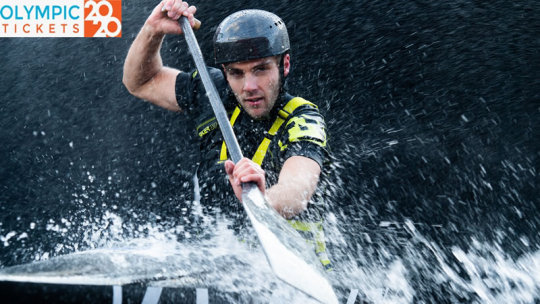
The 24-year-old will contend in the C1 class at Tokyo's Kasai Canoe Slalom Center on July 26 and 27. Jegou will turn into the second Irish competitor to contend in the C1 kayak slalom the occasion at the Olympic 2020, with the main other being Mike Corcoran, who last contended at Atlanta 1996, the year wherein Jegou was conceived.
He has pledged to take advantage of his lucky break at Olympic 2020. Being an Olympian has consistently been probably the greatest dream, Jegou, who is situated in France, said. I began preparing when I was 11 or 12.
The previous month has been unimaginable realizing that I will vie for Team Ireland in the Olympic 2020. In my game the Olympics is everything, it's what everybody works for in their game. It's such a select thing; there's just a single competitor for each country that finds a workable pace when you find a workable pace simply need to give it your everything.
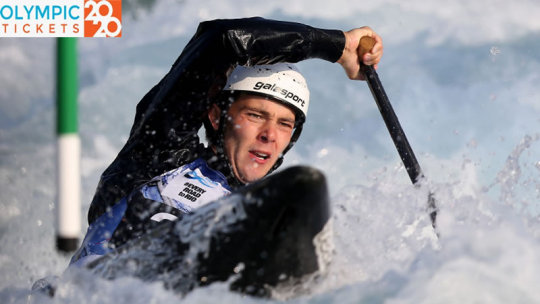
A great many people just find a good pace the Games a few times in their lives, and I'm not going to let the open-door cruise me by. Tricia Heberle, the Olympic Federation of Ireland's Chef de Mission for Tokyo Olympic, included: "It's energizing, this is our first the competitor to be endorsed as a major aspect of Team Ireland for 2020 Olympics – it's incredible for the game and extraordinary for Liam.
There is a huge measure of work that goes on off-camera to help sports and our competitors to qualify and perform at the Summer Games. It's a genuine collaboration with our National Federations, the Sport Ireland Institute and a scope of other care groups cooperating with the competitors as our needs.
Liam has his own story and we are so satisfied to be supporting the following section in his excursion as he gets ready for the Tokyo Olympic Games. Jegou was assigned for the Olympic 2020 space in the wake of completing on top of the three-race determination criteria, which included a year ago's World Championships in Spanish town La Seu d'Urgell.
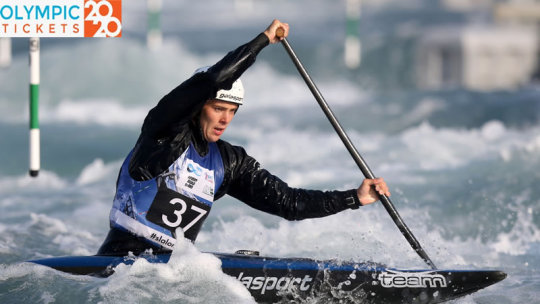
That was the occasion wherein Ireland qualified the desired Olympic billet obligingness of Robert Hendrick, another capable Irish racer. Ireland has a rich history in K1 kayak slalom, with Ian Wiley and Eoin Rheinisch contending in the occasion for three Olympic Games each somewhere in the range of 1992 and 2012.
Eadaoin Ní Challarain was the primary Irish female kayak slalom racer, contending in the K1 at Sydney 2000 and Athens 2004, and Hannah Craig likewise dashed in the occasion at London 2012. This is the principal official Team Ireland declaration for Olympic 2020. Numerous games have continuous determinations and rivalries, with further declarations expected all the more much of the time in the coming months. The last declaration is planned for the start of July.
Olympic 2020 devotees can get Olympic Tickets through our trusted online ticketing marketplace. OlympicTickets2020.com is the most reliable and consistent source to book Olympic Packages.
#OlympicTickets#OlympicHospitality#OlympicCanoeTickets#OlympicPackages#Olympic2020Tickets#SummerGamesTickets#TokyoOlympicTickets#BuyOlympicTickets#SellOlympicTickets
0 notes
Text
Olympic Canoe: Men's C1 Oceania Olympic 2020 selection up for grasps in Auckland
The men's C1 canoers get an opportunity to meet all requirements for the Tokyo Olympic at the Oceania Canoe Slalom Championships in Auckland. Olympic followers from all over the world are invited to book Tokyo Olympic tickets from our online platforms for Olympic Tickets. Olympic Canoe fans can book Olympic Canoe Tickets from our ticketing marketplace exclusively on discounted prices.
The men's C1 occasion will be the one in particular where an Olympic 2020 standard chose after Oceanic countries were not effective in the race at the 2019 International Canoe Federation (ICF) Canoe Slalom World Championships.
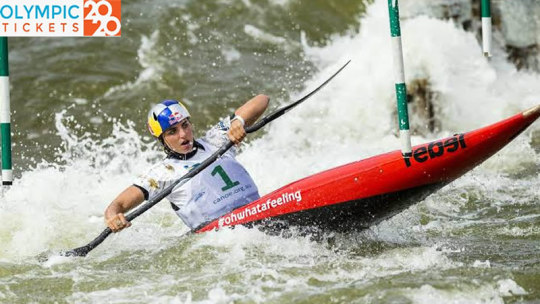
Australia, New Zealand, and The Cook Islands will challenge for the amount, with Australia being the top picks, however, they will confront extreme New Zealand restriction. Australia's kayak slalom paddlers have just verified the most extreme portion sports per nation for the men's K1 and ladies' C1 and K1 occasions.
National choice preliminaries for Australia will incorporate these titles just as the Olympic Canoe Australian Open from February 21 to 23. In the men's K1, New Zealand has additionally equipped for Tokyo Olympic.
Rio Olympian Lucien Delfour will hope to verify his place on the Australian group has affirmed his country's K1 place at the Summer Games, however, will be pushed by K1 and C1 competitor Daniel Watkins and Tim Anderson, who made his first World Championships semi-last a year ago.
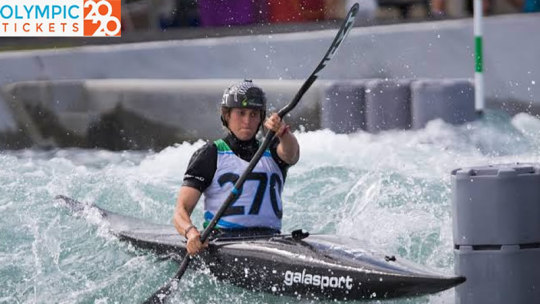
Australia's C1 competitors will be Watkins, Ian Borrows and Tristan Carter, who will hope to gain the Continental Olympic 2020 standard for their country. The men's C1 is overly serious right now and I was extremely glad to have been quick enough to get the success at nationals said, Watkins.
The weekend gave me trust in my structure going into Tokyo Olympic choice and I trust I can convey this structure and win the primary determination race to ease the heat off the remainder of the choice.
Jessica Fox has just promised her place on the Olympic 2020 group and is the main Australian paddler so far to do as such - she will go on both C1 and K1 occasions. She'll confront her long-term rival, New Zealand's triple Olympian Luuka Jones, with both making the K1 platform in Rio.
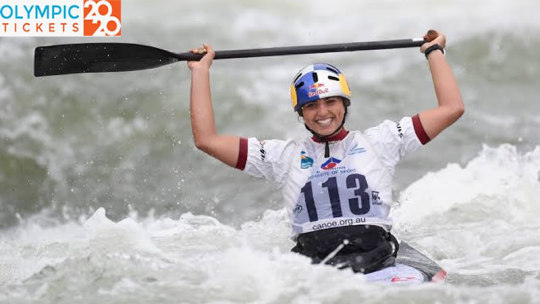
It's extraordinary to have such marvelous challenge near and dear - I've known Luuka throughout recent years and she's perhaps the most grounded paddler on the planet and on her home course, she'll be difficult to beat, said Fox.
I recall Rio and that it was so uncommon to impart the platform to her and to have New Zealand and Australia next to each other, similar to sisterhood as it were. It was pleasant to have the Southern Hemisphere spoke to when it's such a European-focused game and the development of the game in the Southern Hemisphere is incredible.
Olympic 2020 devotees can get Olympic Tickets through our trusted online ticketing marketplace. OlympicTickets2020.com is the most reliable and consistent source to book Olympic Packages.
#OlympicTickets#Olympic2020Tickets#OlympicCanoeTickets#OlympicHospitality#OlympicHospitalityTickets#SummerGamesTickets#TokyoOlympicTickets#BuyOlympicTickets#SellOlympicTickets
0 notes